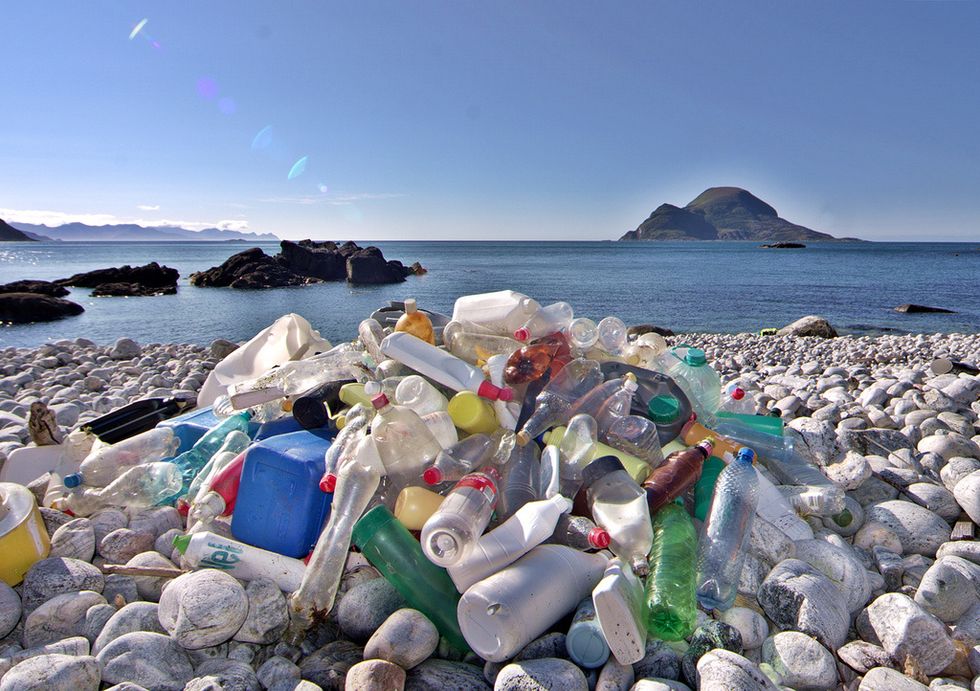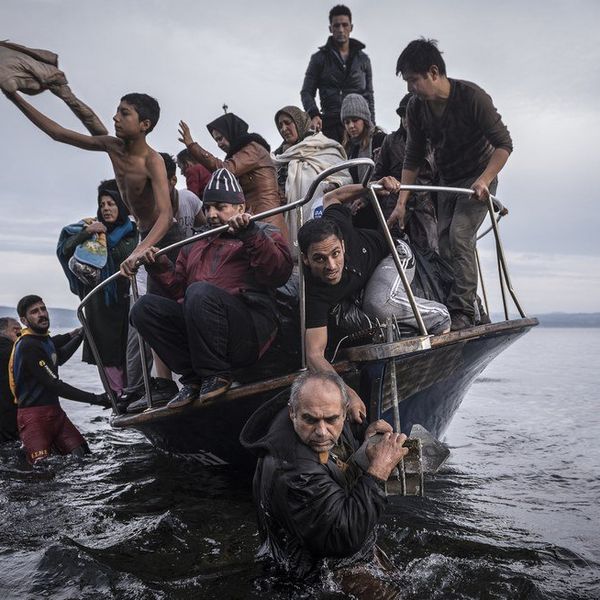I've never been one to keep track of our planet's health status. More recently, however, I've been seeing news stories focused around zero waste lifestyles and plastic-free living. In attempts to educate myself, I read articles, blogs, watched videos, and tried to understand how my daily living habits can and have left a lasting impact on our environment. From my research, I began to wonder just how much waste I produce a day and how much of that waste is plastic.
What started off as pure curiosity lead to the personal realization that I have been over-using plastic, and as a result, I am damaging the world we are living in.
I realize that not everyone knows what "zero waste living" is. So, from a newly environmentally woke student to a curious Odyssey reader, let me break it down for you.
Zero waste living is living your life without collecting or throwing away ANY waste; the goal is to have nothing in your trash bag by the end of the day- every day.
Pretty self-explanatory, I know, but let's discuss this further. When I say ANY waste, I literally mean any waste imaginable. I'm talking about paper napkins, shopping bags, plastic straws, plastic silverware, plastic water bottles, THE PLASTIC WRAP SURROUNDING YOUR PACKAGE OF PLASTIC WATER BOTTLES, and many, many more wastefully packaged and created products. According to goingzerowaste.com (an amazing, informative website on all zero waste subject matter), the average American sends 4.4lbs of trash to the landfill every day.
That means the average American sends about 1,606lbs of trash to the landfill annually. And this is all just ONE person's waste, I don't want to know how much we as a nation waste on average daily.
Now I bet you're thinking, okay, so we use a good amount of plastic, what's the big deal? I'm glad you asked. Originally, I was unsure of how so much of our trash ends up polluting our earth, specifically our oceans. Through National Geographic's explanation in "What Happens to the Plastic We Throw Out," however, it all began to make sense.
When we throw away our plastic waste it ends up in a landfill, where a large majority of waste does not stay but is actually pushed towards nearby waterways. These waterways lead the waste into large oceans where the plastic floats about, polluting the water and harming the wildlife living in it. Researchers at Plymouth University have reported that the lives of 700 different marine species are in jeopardy due to water pollution our waste caused. And although marine life such as sea turtles, whales, and seals are the most affected group of wildlife, plastic pollution puts the lives of many land species in danger as well. Our living habits are affecting the lives of creatures who have no ability to stop us or fight their unfortunate situation.
We all need to reflect on our lifestyle choices and make the decision to live plastic-free.
So, what can YOU do? A lot actually. You can start by taking baby steps towards living a zero waste lifestyle. Little actions such as not using a plastic straw at restaurants, or using silverware instead of plasticware when eating food CAN make a difference. Too often people get wrapped up in the idea of, I'm one person. What I do won't really make a difference. And if that's the case for you, well, you're wrong. Small steps towards living zero waste ultimately keep pounds of plastic out of our oceans.
Aside from taking these steps, you can spread the word! Tell your friends and family why you've decided to make a change in your lifestyle, and encourage them to join you! You could even make it a competition if it will keep you more motivated- see who will have collected the least amount of waste by the end of one week! Yes, it is a big world. But if we are going to make a change, it's going to take a lot of help- and that change starts with you.
After learning more about zero waste, I have decided to go one week living a plastic-free life. I encourage all of you reading to give it a try along with me. Hopefully, after this first week, I will have learned how to manage a zero-waste lifestyle and will continue to live that way.
For more information on how living in a plastic dependent world has affected ourselves and our environment, I highly recommend you all check out Kathryn Kellogg's personal story on why she chose to live zero waste and how she's been doing so (goingzerowaste.com), as well as National Geographic's "Planet or Plastic" issue.



















